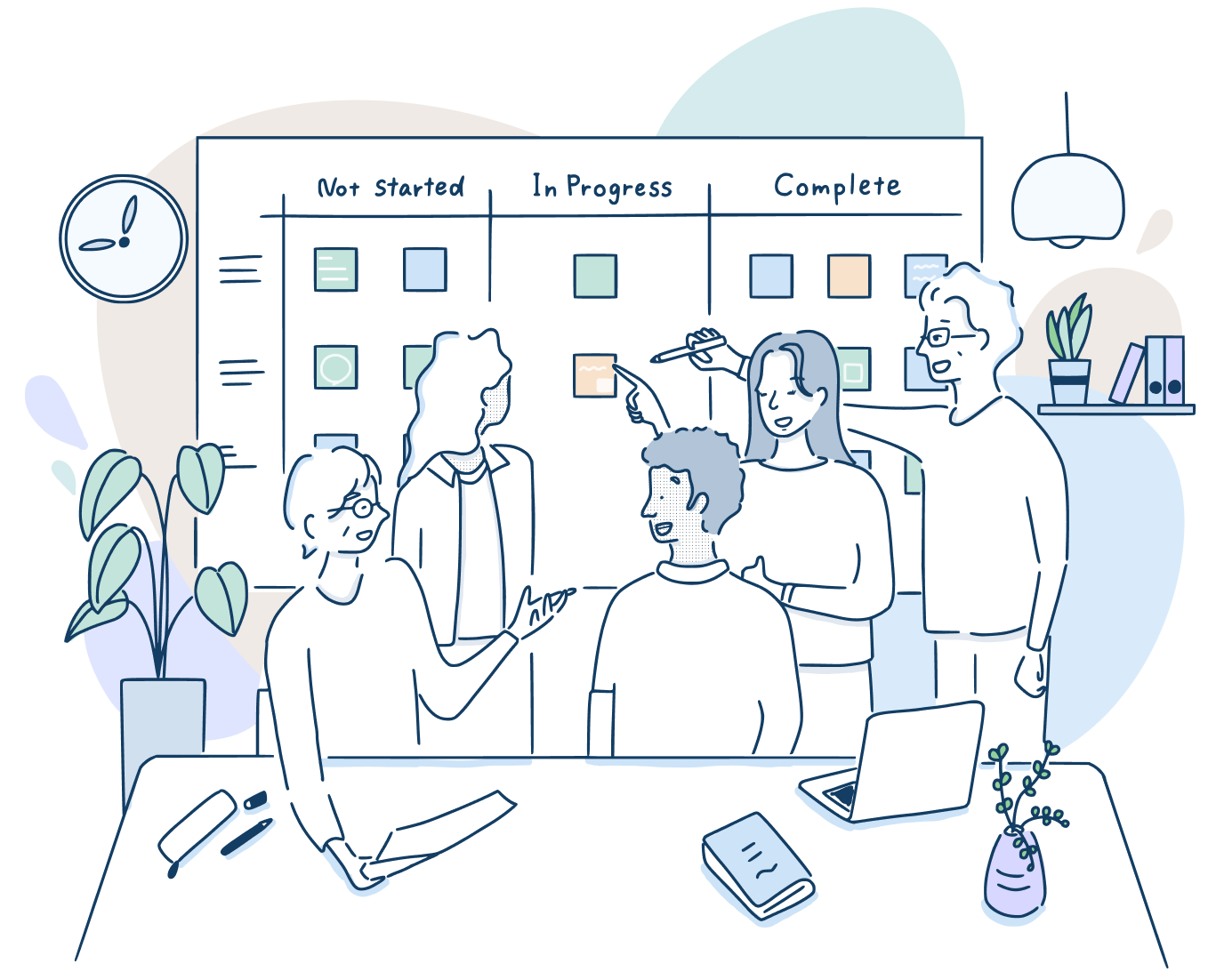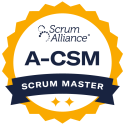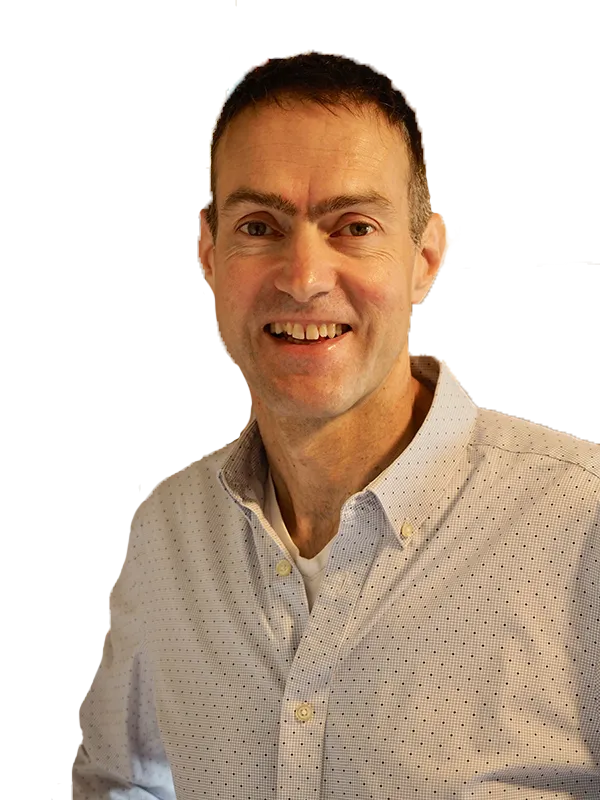Become an Advanced Certified Scrum Master (A-CSM)
The course for those wanting to expand ScrumMaster skills, spark organizational change, and advance their career in Agile coaching. Distinguish yourself by learning how to navigate changing markets and conditions (Covid, anyone?), and take the next step toward Certified Scrum Professional.

Course Level
Advanced Certified ScrumMaster (A-CSM) certification® is the second step in the Scrum Master Track
Prerequisites
Existing Certified ScrumMaster, minimum 12 months experience as a ScrumMaster in the last five years
Self-Paced
Join any time, work at your own speed, with three Certified Scrum Trainers we offer high flexibility and availability

Upcoming Workshops
Using 20+ years of experience teaching Scrum and the science of learning, we infuse our Advanced Certified ScrumMaster training program with humor and wit to make the course fun and engaging. Plus, we back up our claims with hard evidence, so you can trust that you’re getting the real deal with your Advanced Scrum Master certification. As a Scrum training provider, we ensure that our online certification training program is a safe place for you to learn.
This isn’t your typical Advanced Certified ScrumMaster course
Relatable Scenarios
Learn on-the-job applications of key Scrum concepts, skills, principles, and practical solutions for difficult, real-life scenarios that you can apply the next day.
Invaluable Coaching
Group and individual sessions to help you put your new skills and understanding into practice right away. Regular coaching calls, so challenging problems can be worked through live with your peer group.
Practical Exercises
Focused on the challenges that real teams face, and designed to give you tools to dig deeper. You don’t need more boring Scrum theory. You need something that you can sink your teeth into and see immediate results.
High-performing Teams
Keep your organization on track, reduce conflicts and challenges, and coach your Scrum team to higher performance and effectiveness.
Career Advancement
Challenge your understanding of the Scrum Master role and all that you can achieve – from initial expansion beyond the basics, right through to advanced achievements and building high-performing teams.
Ongoing Support
Our active Scrum community forum is a safe place to ask questions. Long after you earn the Advanced Certified Scrum Master certification, you will have access to the forum, course materials, and additional valuable resources.
What our students say
Any Certified Scrum Trainer can help you get a certificate that you can frame for your wall. But do they help you know how to work through the hard parts of Scrum and teach you the right skills to be effective? We make that the priority.
Get exclusive bonuses with our Scrum Alliance Certified Scrum training
Future-proof blueprint
A practical plan for Scrum team success, to guide you through your first few months after class and help you be effective long-term.
Personal coaching
Get professional input on the unique issues you’re facing at your organization in a coaching session with Mark after training.
Resources
When you’re confused about Scrum or Agile, you can access reputable information, including a Glossary and Resource Library.
Community access
A safe online space to ask questions and get experienced answers when you run into challenges with Scrum and Agile.
Lean Coffee
Fun and friendly virtual meet-ups to discuss Scrum and Agile. Hear from Mark and others what has and hasn’t worked for them.
Money-back guarantee
You’ll gain valuable skills and learning from our certification workshops, or we’ll refund your registration price.
Your Guide to Everything Scrum
Mark Levison spent 12 years as a ScrumMaster and Coach, helping teams by chance before he started to systemize it. Armed with an insatiable love for research, he has been studying and teaching Agile since 2001, introducing Scrum, Lean, and Agile methodology to a broad range of individuals and organizations. Mark has helped launch Scrum practice throughout Canada including Government of Canada departments, major financial and insurance institutions, healthcare agencies, and leading payroll, HR services, and software companies.
Students and communities benefit from Mark’s more than thirty years of experience in the IT industry and over two decades of Scrum and Agile expertise, as he brings his uniquely fun and effective teaching style to thousands of individuals and teams so they can be more effective.
Frequently asked questions
A ScrumMaster is responsible for ensuring that the Scrum principles and values are understood and practiced within the Scrum Team and their organization as a whole. They facilitate Scrum events, and help to identify and eliminate impediments. Their role is to also safeguard the team from external challenges, and coach the Scrum team by encouraging continuous improvement and collaboration. And, finally, a Scrum Master facilitates effective communication between Scrum Developers, Product Owners, stakeholder, management, and all involved.
An Advanced Certified ScrumMaster is one who has fulfilled the A-CSM Certification Requirements, and has completed Scrum Alliance Advanced Certified ScrumMaster training from an accredited Certified Scrum Trainer to deepen their understanding of the Scrum Master role and their effectiveness with their team.
If you or your organization are struggling to implement Scrum effectively, or you are not seeing the results you expected or hoped for with the adoption of Agile and Scrum, Advanced Certified ScrumMaster training will be a valuable investment. By having a deeper understanding of the how and why of Scrum, and not just the what, an Advanced Certified Scrum Master will be able to help keep your organization on track, reduce conflicts and challenges, and coach your Scrum team to higher performance and effectiveness.
On a more personal level, Scrum Masters with Advanced Certified ScrumMaster (A-CSM) certification typically have significantly better employment opportunities and higher wage ranges.
Certified ScrumMaster (CSM) certification® is the first step in the Scrum Alliance® Learning Journey: Scrum Master Track. The initial CSM certification training teaches the basics of the Scrum framework and Agile methodology, but it is limited in scope and does not dig deep into practical methods to apply the principles and be effective in the Scrum Master role.
Advanced Certified ScrumMaster (A-CSM) certification® is the second step in the Scrum Master Track. (Certified Scrum Professional® – ScrumMaster (CSP – SM) is the third step.) A-CSMs learn and develop broader skills and experience with facilitation, conflict resolution, and coaching teams to greater improvement and performance. Lean software development, collaboration, cross-skilling, and scaling Scrum in organizations, as well as overall organization change, are just some of the areas that an Advanced Scrum Master has more knowledge and tools to help their team.
Indeed.com lists the average salary of an Advanced Certified Scrum Master in the ballpark of $110,000 and $130,000 annually*, which works out to around $60 per hour on average. Reportedly, Canadian A-CSMs receive slightly higher earnings than their American counterparts. As of late 2023 there are only a few thousand Advanced Certified Scrum Masters world-wide. I would make the guess that data found in a few other sources was generated by an LLM and so has no basis in fact.
Certified Scrum Professional® – ScrumMaster (CSP – SM) is currently the highest level of Scrum Master certification offered by the Scrum Alliance®, the globally-recognized licensing body for Scrum. After becoming a CSP-SM, the path continues to Certified Team Coach (CTC) and Certified Enterprise Coach (CEC).
To maintain your Scrum Alliance® certifications, you are required to earn Scrum Education Units (SEUs) by completing educational training or learning opportunities. It’s easy to do and will help you stay relevant (and competitive) in the market. One hour of activity = 1 SEU. Any initial certification training does not qualify for SEUs, however if you take the same training again, it could.
There are many opportunities for earning SEUs that don’t cost money, and don’t require special courses.
We are happy to offer several free resources that qualify for SEUs, including:
-
The Guide to Effective Agile Retrospectives This eBook and accompanying email series help you take Retrospectives from groans to grins. You could reasonably claim 2 hours of reading the book, and 10 hours of taking action with the email exercises. Free with newsletter subscription.
-
Our Lean Coffee Events Hang out online and have a virtual coffee with CST Mark Levison. Bring your Scrum questions and challenges. A great opportunity to meet and interact with Mark, even if you haven’t attended his training yet. Free for newsletter subscribers.
-
Notes from a Tool User Reading blog posts counts too! We have a wide variety including posts featuring a fictional new Scrum team and all the mishaps they face, features on Anti-Patterns, and how to be successful beyond the basic Scrum framework
Find these and more free resources here.
For more detailed information about Scrum Education Units, visit the Scrum Alliance® SEU information page, or contact us with your questions – we’d be happy to help!
Upcoming Workshops
Using 20+ years of experience teaching Scrum and the science of learning, we infuse our Advanced Certified ScrumMaster training program with humor and wit to make the course fun and engaging. Plus, we back up our claims with hard evidence, so you can trust that you’re getting the real deal with your Advanced Scrum Master certification. As a Scrum training provider, we ensure that our online certification training program is a safe place for you to learn.
